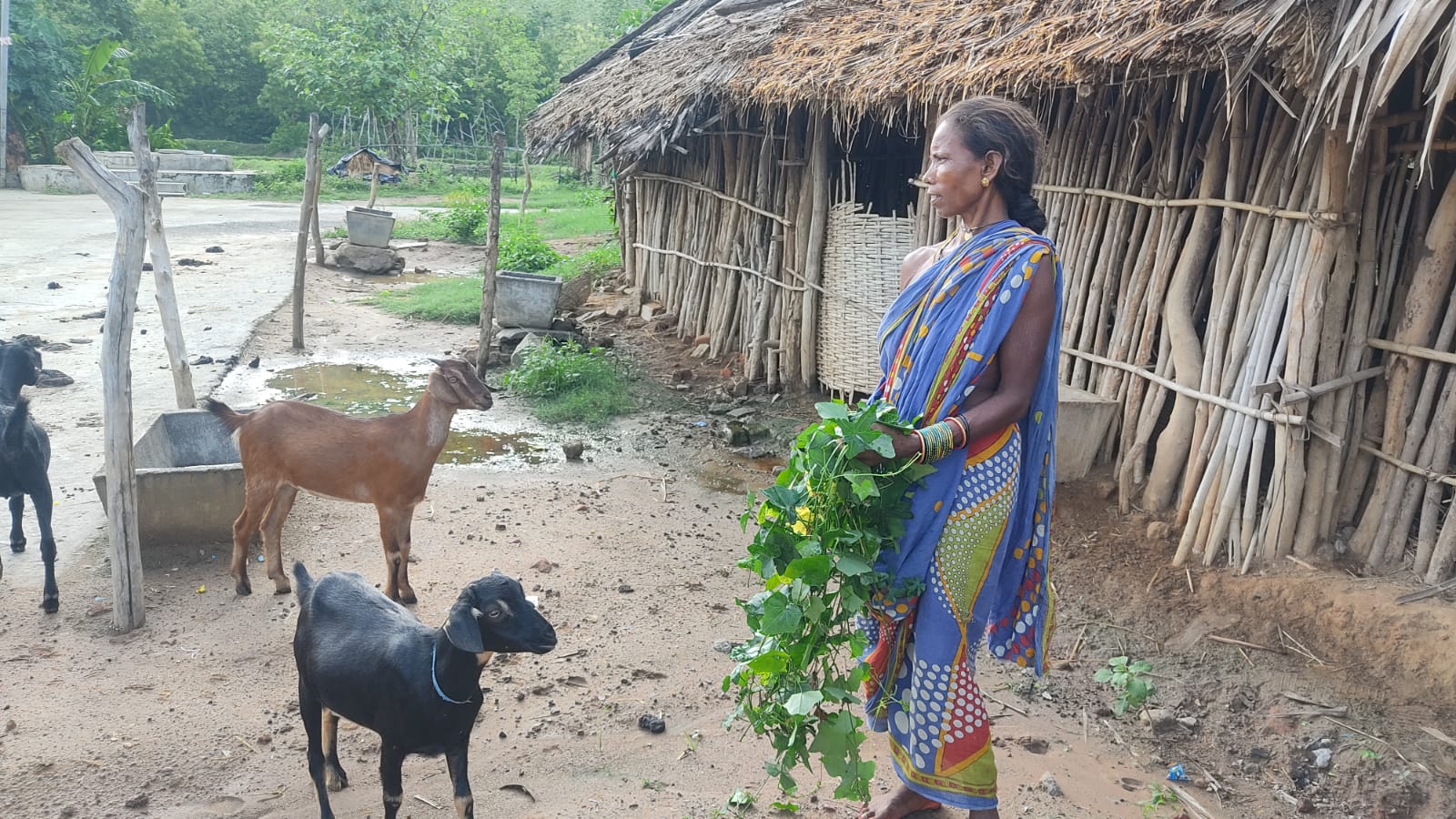Sustainable Liveihoods
We are committed to promoting the sustainability of land and coastal resources, empowering people with skills, and fostering diversified and secure income sources. We work to ensure that fishing and tribal communities have access to their rights over natural resources. Through the acquisition of new knowledge in the sustainable use of natural resources, we aim to enhance land quality and productivity. By providing training in new skills and supporting diversified livelihoods, we contribute to improving their incomes and overall well-being.
DJMV implementing various community-based projects to secure livelihoods.
- Natural Farming
- Fishery Based Livelihoods
- Enterprise Development
- Vocational Skill Training




Natural Farming
DJMV is promoting community-based natural farming in the tribal pockets of Kukadakhandi block, Ganjam district, with support from the Global Green Grants Fund, USA. The Governments of India and Odisha are increasingly prioritizing natural farming in rural areas. DJMV is actively involved in advocating for and implementing community-based natural farming in rural regions. Natural farming, also known as "nature farming" or "zero-budget farming," is an agricultural practice that aims to cultivate crops and raise livestock in harmony with natural ecosystems, eschewing synthetic inputs such as chemical fertilizers, pesticides, or genetically modified organisms (GMOs). It emphasizes sustainable, regenerative techniques that align with nature's processes.
The program targets impoverished and vulnerable tribal and Dalit households, directly impacting a tribal population in the Kukadakhandi block of Gajapati district, Odisha. The overarching goal of the project is to enhance production, productivity, and economic empowerment among vulnerable women farmers through the adoption of natural farming practices in tribal areas of Gajapati district, Odisha.
The specific objectives are as follows:
- Building the capacity of tribal farmers in community-based natural farming.
- Enhancing the knowledge of women farmers on natural farming practices, leveraging natural resources and indigenous knowledge.
- Increasing household income for marginal farmers through the adoption of natural farming practices, thereby promoting economic empowerment.
The programme strategy revolves around capacity building for women in natural farming practices, integrating technology into sustainable agriculture to augment incomes, and enhancing overall quality of life through natural farming practices.
Program outcomes include:
- Training women in community-based natural farming practices at the village level.
- Development and distribution of sets of Information, Education, and Communication (IEC) materials on natural farming, covering topics such as Organic Manures, System of Rice Intensification, System of Millets Intensification, and bio-fertilizer processes, benefiting poor households.
- Training marginal women farmers in natural farming practices at the village level by agricultural experts.
- Cultivation of paddy by small farmers using the System of Rice Intensification (SRI) method.
- Cultivation of millets by small and marginal farmers using the System of Millets Intensification method.
- Promotion of nutri-gardens within tribal families to ensure food and nutritional security at the household level.
- Promotion of System of Rice Intensification
- Revival of Millets in tribal pockets
- Training on Natural Farming to Marginal farmers
- Vermi compost pits
- Nutri Gardens
- Organic Vegetable Cultivation
Community Voice
42 years Tamala Dalei said “I am very happy that I have learned organic farming. I used to apply chemical fertilizers but now I have learned to handi khata. It is very easy and cheap. By applying it, the trees and the soil will not be harmed and the crops will be harvested well”
Sumitra Mallik said,” I was very happy to attend nutrition didi training I learned that by farming organically, we can get fresh vegetables that we can keep some for home and some to sell at the vegetable market”.
Story of Change: Cultivating Fresh Food- Serve Nutrition Food
In the remote tribal village of Khandalbandha, Krushna Mallik and her family, driven by a desire for self-reliance, embraced the idea of growing their vegetables. With support from the women's organization Divya Jyoti Mahila Vikash, Krushna learned to adapt traditional knowledge to modern farming techniques. Guided by DJMV's community organizer, Krushna prepared the land and received training on sustainable vegetable cultivation. Supported by seeds from a joint venture between DJMV and GGF, Krushna's hard work transformed barren land into a thriving vegetable garden.
The success of Krushna's venture empowered women in her community, inspiring them to embrace sustainable farming and start their gardens. This initiative not only improved nutrition and livelihoods but also instilled pride and self-reliance within the tribal community
“Krushna Mallik expressed, "Previously, I relied solely on my husband for support while assisting him in farming. Now, with my vegetable garden, I can contribute to our income by selling fresh produce, ensuring daily consumption, and saving a portion of the earnings."